Leiti 713 tulemust
Skip results of view Uudised
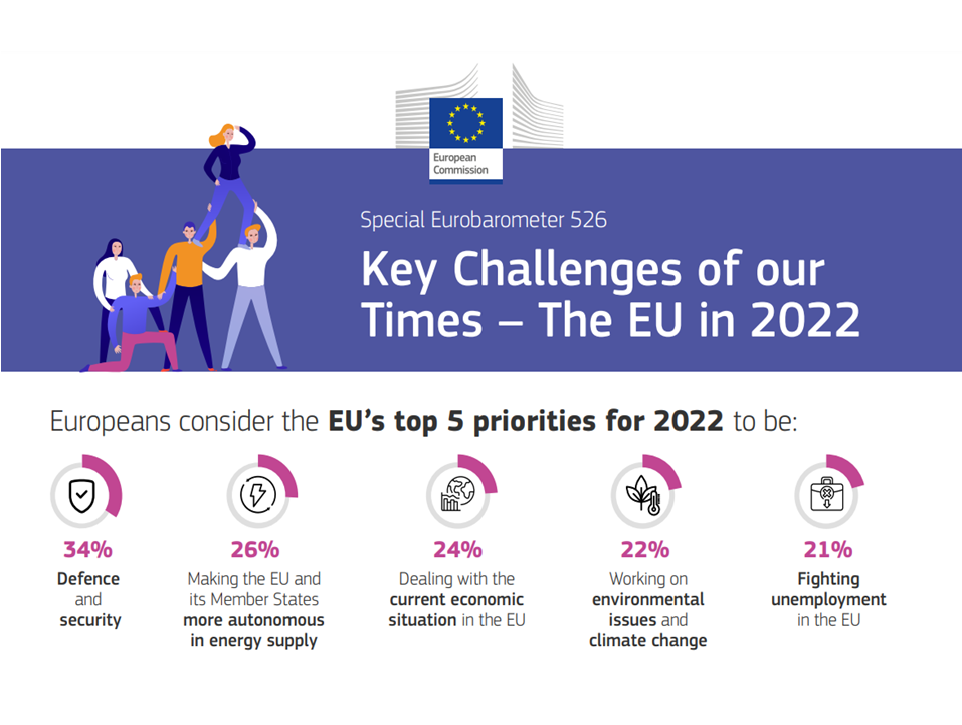
Eurobarometer surveys are EU institutions´ official polling instrument to track the state of public opinion in Europe on socio-political issues related to the European Union. On 15 June, the first of a series of Eurobarometer surveys focusing on ´ Key challenges of our times - the EU in 2022 ` was published. Among these challenges, citizens were asked to express their view on the EU´s priorities in 2022, the war in Ukraine, defence and security, energy and climate change, and the Covid-19 pandemic. At the top of the EU priorities for this year, Europeans mention defence and security (34%) and
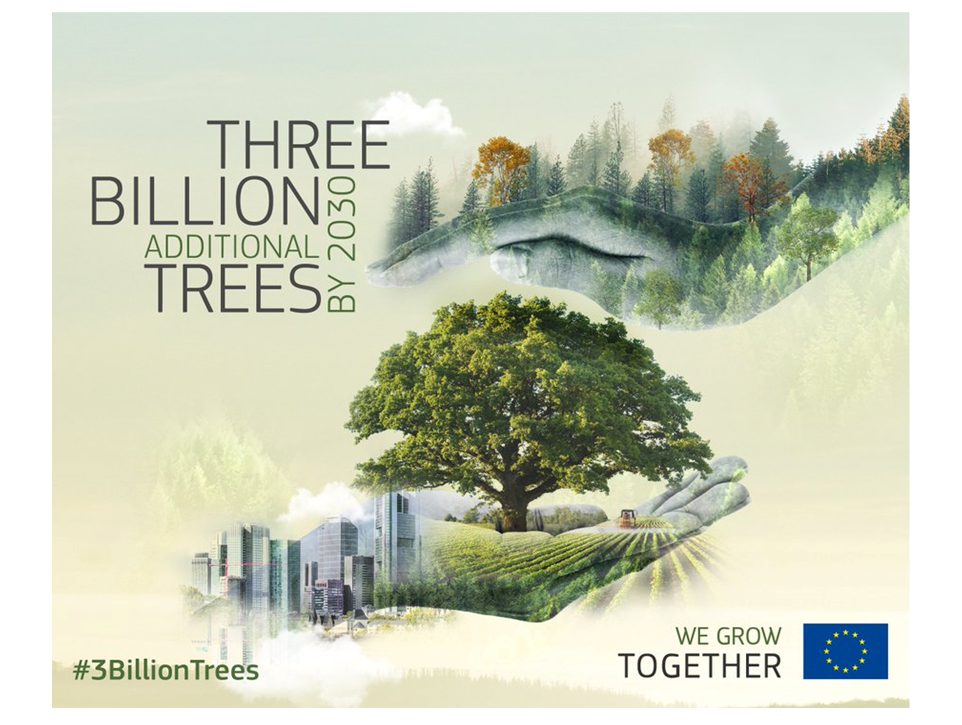
In December 2021, the European Commission and the European Environment Agency (EEA) launched the platform MapMyTree . This data tool aims at supporting the planting of three billion additional trees over the next decade, as set out in the European Green Deal´s EU Biodiversity Strategy for 2030 to combat climate change and biodiversity loss. In May 2022, the platform was open to everyone, so that every new tree that fulfils the requirements can be counted. At the moment of writing, the data tool – which also includes an interactive map of Europe showing the position of the different trees –
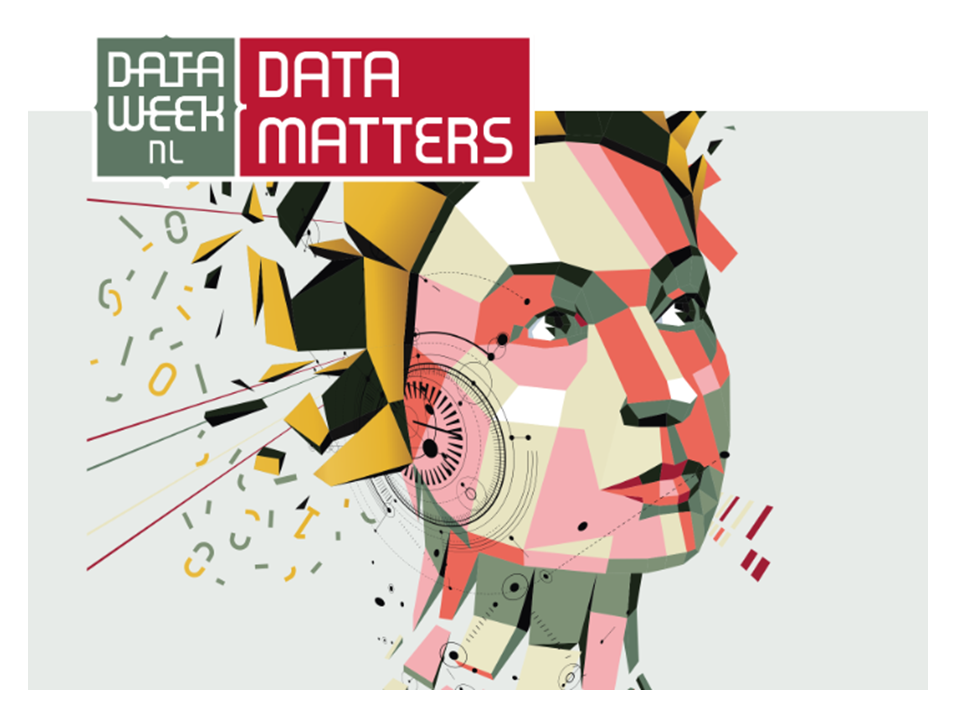
Join the 5 th annual Data Week NL from 27 June until 2 July in ‘s-Hertogenbosch, the Netherlands. Under the slogan ‘Data matters, it’s now or never!’, the event focuses on the importance of data literacy, the value of (open) data and the data economy. The event embraces the influence of these global topics in a national and local context with various practical examples and testimonials. Just as data itself, the event will be an exciting happening. While the topics range from data-economy on Tuesday, smart cities and data on Wednesday, transparency of data on Thursday, to societal influence on
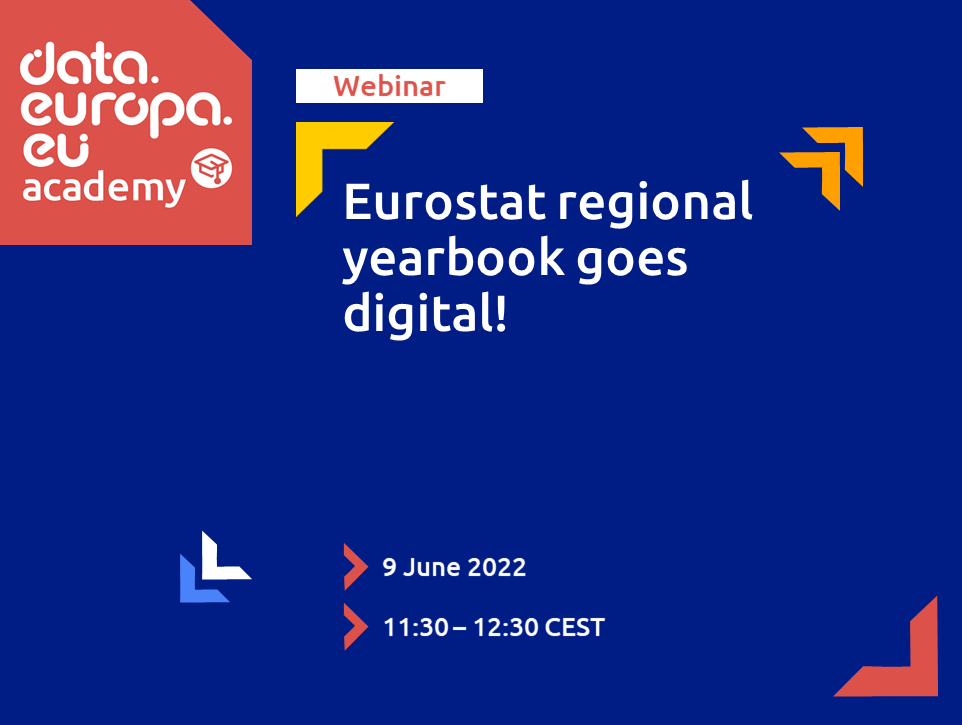
On 9 June 2022, the data.europa webinar ‘Eurostat regional yearbook goes digital!’ provided insights into the Eurostat regional yearbook ´s journey from a printed/pdf publication with a long-standing tradition to a digital publication and modern interactive tool. T he regional yearbook is Eurostat´s flagship publication that was first published in the 1970s and is now among the Eurostat’s most downloaded publications. Since 2000, the regional yearbook has been published both as print and as PDF, but ´with changing publication modes and users´ needs it became necessary to revisit the format of

Last November, the Publications Office of the European Union organised the first ever EU Open Data Days . Over three days (23-25 November 2021), the event showed the benefits of open data to more than 2300 registered EU public sector representatives, citizens and businesses, under the main motto: ‘ shape our future with open data’ . Over 70 speakers from all over the world took the floor in six thematic sessions . Each of these sessions provided an overview of innovative techniques and best practices used in both the private and the public sectors, offering the participants valuable insights
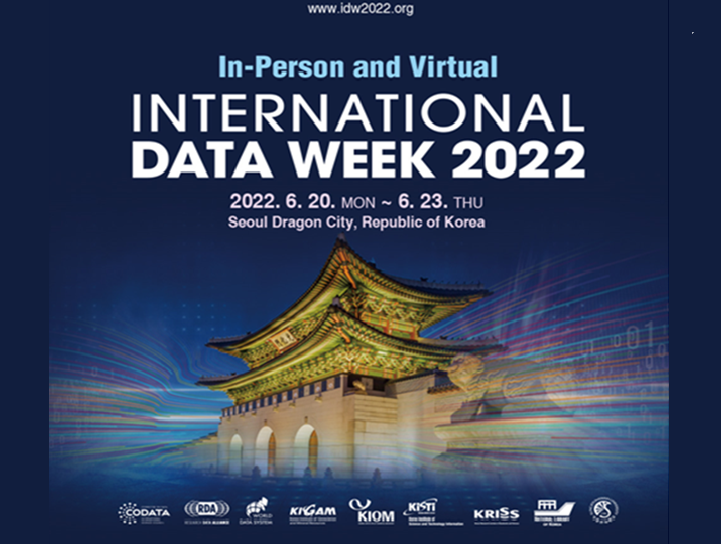
The International Data Week (IDW) is a landmark event by the Committee on Data (CODATA) and the World Data System of the International Science Council, and the Research Data Alliance (RDA) . Its aim is to annually gather data scientists, researchers, industry leaders, entrepreneurs, policymakers and data stewards from various disciplines across the globe to explore how data-driven discovery and innovation can improve science and society. This year, the conference will take place from 20 to 23 June in a hybrid format, with the possibility to participate either in person in Seoul, South Korea
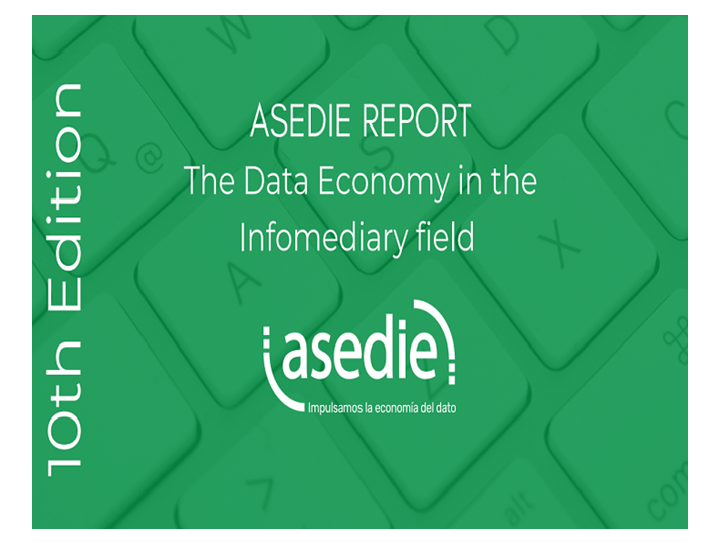
‘ The Data Economy in the Infomediary field ’ is the recently published report by ASEDIE, the Multisectorial Information Association. The report marks the 10 th edition of an annual publication aimed at providing an overview of the status of the infomediary sector in Spain in the given year. As reported by ASEDIE, the infomediary sector includes ´companies that analyse and process information from the public and / or private sectors to create value-added products for third parties or the general public` that – among others - help in effective decision making. The 2022 report identifies 701 of

On 3 May 2022, the European Commission presented its proposal for the European Health Data Space (EHDS), a milestone for easier and more secure rules, structures, and processes across EU Member States to access and share health data across borders. Building on legislation such as the GDPR, the proposed Data Governance Act , draft Data Act and the NIS Directive, the EHDS aims at addressing the complexity of present European rules on data sharing in the health sector, unveiled during the COVID-19 pandemic, and foster health digital services across Europe. To do so, this health specific European

Every day, millions of people search, publish, reuse and analyse data. Very often, however, it is very difficult for users to find the correct data. In this regard, correctly citing data is fundamental to allow people around the world to make the best use of data. But how should data be cited? The recently published guide by the Publication Office of the European Union, ‘ Data citation: a guide to best practice ’, includes recommendations and best practices on how to cite data. D ivided in three parts, this publication firstly addresses the importance of good data citation and explores all its

To provide or enhance humanitarian help to people fleeing Ukraine, the European Union Agency for the Space Programme 's (EUSPA) is organising the #EUSpace4Ukraine Hackathon . The hackathon, which will take place from 29 June to 1 July 2022, aims at developing different kinds of humanitarian support solutions: from replacing broken landlines on the Ukrainian territory, to fostering coordination across private and public helper organisations and creating platforms for the integration of refugees in host countries. These solutions should leverage data and services from the EU Space Programme
